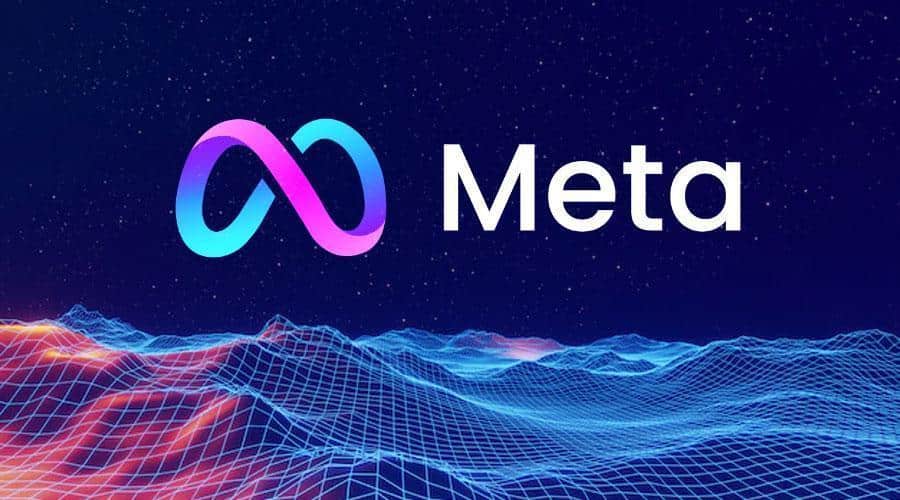
- Meta, the parent company of Facebook and Instagram, plans to create an Artificial Intelligence model that competes with OpenAI.
- Meta aims to develop an AI model significantly more powerful than its existing Llama 2 model.
- It intends to open-source this new AI system, fostering collaboration and innovation in the AI community.
Meta, the parent company of popular social media platforms Facebook and Instagram, is making headlines with its ambitious plans to develop an advanced Artificial Intelligence (AI) model to compete with OpenAI’s cutting-edge technologies.
According to a report by The Wall Street Journal, Meta is on a mission to create an AI model that surpasses its Llama 2 model. The previous model was released earlier this year, regarding power and capabilities.
The Llama 2 model, already an impressive feat in AI, served as a benchmark for Meta’s aspirations. However, the sources mentioned in The Wall Street Journal’s report have indicated that Meta’s objective is to design an AI model that is “several times” more potent than Llama 2. This ambitious undertaking underscores Meta’s commitment to staying at the forefront of AI innovation.
One notable aspect of Meta’s plan is its intention to open-source the new AI system. This approach aligns with the company’s vision of fostering collaboration and innovation in the AI community. By allowing other organizations and developers to access and utilize their AI model, Meta intends to enable the creation of various AI tools capable of generating high-level text, conducting sophisticated analyses, and producing a wide array of outputs. This move has the potential to catalyze advancements in AI applications across industries.
READ: Alibaba to support Artificial Intelligence model Llama by Meta
Meta is investing in the infrastructure required to host and train such a resource-intensive model. This includes acquiring Nvidia’s H100 semiconductor chips. The chips are known as some of the most potent and sought-after chips in the current market. They are vital for the efficient operation of AI systems, and Meta’s focus on obtaining them underscores the company’s commitment to building cutting-edge AI capabilities.
To put the scale of this endeavor into perspective, Llama, the model that Meta seeks to surpass, was trained on a staggering 70 billion parameters. In contrast, OpenAI, a prominent player in the AI field, has not publicly disclosed the parameters for its GPT-4 model but estimates place them around 1.5 trillion. These models’ sheer scale and complexity highlight the immense computational power and resources required for training and maintaining them.
According to the sources cited in The Wall Street Journal’s report, Meta plans to initiate training for its large language model (LLM) in early 2024 to prepare it for release sometime next year. This timeline suggests that Meta’s new AI model will enter the AI landscape after Google’s upcoming LLM, known as Gemini. The competitive dynamics in the AI field are heating up, with major tech companies vying to push the boundaries of AI capabilities.
READ: Tencent launches ChatGPT rival in China in Artificial Intelligence battle
Microsoft, a primary supporter of OpenAI, has also collaborated with Meta to facilitate the availability of Llama 2 on Azure. However, Meta’s ambitions for its upcoming AI model entail training it on its proprietary infrastructure. Conclusively, this emphasizes the company’s dedication to establishing its own AI prowess.
The development unfolds against a global race among major tech companies and governments to create, deploy, and exert control over AI systems. Various nations and organizations are pouring significant resources into AI research and development. They are recognizing the transformative potential of AI technologies across multiple sectors.
For instance, the Uk government recently unveiled plans to allocate $130 million toward acquiring high-powered chips to advance AI systems. The investment underscores the UK’s commitment to staying competitive in the global AI race. Additionally, it places the country in a better position to harness the benefits of AI for various applications.
Meanwhile, in China, a country known for its rapid technological advancements, new legislation about AI has come into effect. This has prompted a surge in AI-related developments. The CEO of Baidu, a prominent Chinese tech company, revealed that over 70 AI models have been released nationwide. China’s proactive stance on AI reflects its ambition to lead in AI innovation and applications on a global scale.
Meta’s pursuit of an AI model to rival OpenAI’s offerings signifies the intense competition and innovation in the AI landscape. Moreover, the company’s commitment to open-source collaboration and investment in cutting-edge infrastructure illustrates its determination to remain at the forefront of AI development. As AI continues to shape various industries and influence global economies, Meta’s efforts play a significant role in shaping the future of AI.
Read: Blockchain-as-a-Service potential to transform Africa’s business sector
- SEO Powered Content & PR Distribution. Get Amplified Today.
- PlatoData.Network Vertical Generative Ai. Empower Yourself. Access Here.
- PlatoAiStream. Web3 Intelligence. Knowledge Amplified. Access Here.
- PlatoESG. Carbon, CleanTech, Energy, Environment, Solar, Waste Management. Access Here.
- PlatoHealth. Biotech and Clinical Trials Intelligence. Access Here.
- Source: https://web3africa.news/2023/09/20/news/meta-building-better-artificial-intelligence-model-llama-2/
- :has
- :is
- :not
- $UP
- 1
- 2024
- 70
- a
- About
- access
- acquiring
- across
- Additionally
- advance
- advanced
- advancements
- After
- against
- AI
- AI models
- ai research
- AI systems
- aims
- Aligns
- allocate
- Allowing
- already
- also
- ambition
- ambitions
- ambitious
- among
- an
- Analyses
- and
- applications
- approach
- ARE
- around
- Array
- artificial
- artificial intelligence
- AS
- aspect
- At
- availability
- Azure
- Baidu
- been
- Benchmark
- benefits
- Better
- better position
- Billion
- boundaries
- Building
- business
- but
- by
- capabilities
- capable
- catalyze
- ceo
- ChatGPT
- China
- Chinas
- chinese
- Chips
- cited
- collaborated
- collaboration
- come
- commitment
- community
- Companies
- company
- Company’s
- compete
- competes
- competition
- competitive
- complexity
- computational power
- conducting
- continues
- contrast
- control
- country
- create
- creation
- Current
- cutting-edge
- dedication
- deploy
- Design
- determination
- develop
- developers
- Development
- developments
- dynamics
- Earlier
- Early
- economies
- effect
- efficient
- efforts
- emphasizes
- enable
- endeavor
- Enter
- establishing
- estimates
- existing
- facilitate
- feat
- field
- Focus
- For
- forefront
- fostering
- future
- Gemini
- generating
- Global
- global scale
- Google’s
- Government
- Governments
- harness
- Have
- Headlines
- high-level
- Highlight
- host
- However
- HTTPS
- illustrates
- immense
- impressive
- in
- includes
- indicated
- industries
- influence
- Infrastructure
- initiate
- Innovation
- instance
- Intelligence
- intends
- Intention
- into
- investing
- investment
- IT
- ITS
- journal
- jpg
- known
- landscape
- language
- large
- launches
- lead
- Legislation
- Llama
- LLM
- Maintaining
- major
- Making
- Market
- Media
- mentioned
- Meta
- million
- Mission
- model
- models
- more
- Moreover
- most
- move
- multiple
- Nations
- Nationwide
- New
- New Legislation
- next
- notable
- objective
- obtaining
- of
- Offerings
- on
- open source
- OpenAI
- operation
- organizations
- Other
- over
- own
- parameters
- parent company
- perspective
- Place
- Places
- plan
- plans
- Platforms
- plato
- Plato Data Intelligence
- PlatoData
- Play
- player
- Popular
- position
- potential
- power
- powerful
- Prepare
- previous
- primary
- Proactive
- producing
- prominent
- proprietary
- prowess
- publicly
- pursuit
- Push
- put
- Race
- rapid
- recently
- recognizing
- reflects
- regarding
- release
- released
- remain
- report
- required
- research
- research and development
- resource-intensive
- Resources
- Revealed
- Rival
- Role
- Scale
- Sectors
- Seeks
- semiconductor
- Shape
- shaping
- significant
- significantly
- signifies
- Social
- social media
- social media platforms
- some
- sophisticated
- Sources
- staying
- street
- such
- Suggests
- support
- supporter
- surge
- surpass
- system
- Systems
- tech
- tech companies
- Tech Company
- technological
- Technologies
- text
- than
- that
- The
- The Future
- the UK
- their
- Them
- These
- they
- this
- this year
- timeline
- to
- tools
- toward
- Train
- trained
- Training
- Transform
- transformative
- Trillion
- Uk
- UK government
- underscores
- unveiled
- upcoming
- utilize
- various
- vision
- vital
- Wall
- Wall Street
- Wall Street Journal
- was
- wide
- will
- with
- year
- zephyrnet













